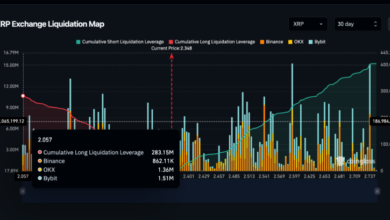Empowering Healthcare: The Role and Impact of Healthcare IT Consulting Services

In the ever-evolving landscape of healthcare, the integration of Information Technology (IT) has become indispensable. Healthcare IT consulting services play a crucial role in navigating this complex terrain, offering expertise, innovation, and strategic guidance to healthcare organizations. This article explores the significance of healthcare IT consulting services, their impact on the industry, and the evolving trends shaping their future.
Introduction: The Imperative of Healthcare IT Consulting
Healthcare IT consulting services bridge the gap between technology and healthcare delivery, offering specialized knowledge and solutions to optimize operations, enhance patient care, and ensure regulatory compliance. As healthcare organizations face increasing pressures to modernize and adapt, these consulting services provide essential support in leveraging IT to meet clinical, operational, and financial objectives.
The Role of Healthcare IT Consulting Services
- Strategic Planning and Implementation: Consultants collaborate with healthcare stakeholders to develop IT strategies aligned with organizational goals. This includes assessing current IT infrastructure, identifying gaps, and recommending solutions that enhance efficiency and scalability.
- Healthcare Systems Integration: Integrating disparate systems such as Electronic Health Records (EHR), Practice Management Systems (PMS), and Telehealth platforms is a key focus area. Consultants ensure seamless interoperability, data exchange, and workflow optimization across these systems.
- Regulatory Compliance and Security: Adherence to regulatory requirements, such as HIPAA (Health Insurance Portability and Accountability Act) and GDPR (General Data Protection Regulation), is critical. Consultants provide expertise in data privacy, security protocols, and risk management to safeguard patient information and mitigate cybersecurity threats.
- Optimization of Clinical Workflows: By analyzing clinical workflows and user experiences, consultants identify inefficiencies and recommend IT solutions that streamline processes, reduce administrative burden, and improve patient outcomes.
Impact of Healthcare IT Consulting Services
Improving Patient Care and Experience
Healthcare IT consulting services contribute significantly to enhancing patient care and experience by:
- Enhancing Access to Care: Through telemedicine solutions and patient portals, consultants improve access to healthcare services, particularly in underserved or rural areas.
- Personalizing Patient Care: Data analytics and predictive modeling enable personalized treatment plans and proactive patient management, leading to better health outcomes.
- Empowering Patient Engagement: Patient-centric technologies such as mobile apps and remote monitoring devices empower patients to actively participate in their care, fostering better communication and adherence to treatment plans.
Enhancing Operational Efficiency and Financial Performance
- Revenue Cycle Management: Consultants optimize revenue cycle processes, from billing and coding to claims management, ensuring timely reimbursements and financial sustainability.
- Resource Allocation: Through resource utilization analysis and capacity planning, consultants help healthcare organizations optimize staffing, equipment, and infrastructure investments.
Driving Organizational Transformation
Healthcare IT consulting services catalyze organizational transformation by:
- Cultural Adoption of Technology: Consultants facilitate change management strategies to promote adoption of new technologies and IT-driven best practices among healthcare professionals.
- Continuous Improvement: Through performance metrics and benchmarking, consultants enable continuous improvement initiatives that align IT investments with organizational goals and stakeholder expectations.
Emerging Trends in Healthcare IT Consulting
- Artificial Intelligence and Machine Learning: Consultants leverage AI and ML algorithms for predictive analytics, clinical decision support, and population health management.
- Blockchain Technology: Enhancing data security, interoperability, and transparency in healthcare transactions, including supply chain management and patient records.
- IoT (Internet of Things): Consultants integrate IoT devices for real-time monitoring of patient health metrics, asset tracking, and environmental sensing in healthcare facilities.
Challenges and Future Outlook
Addressing Challenges
- Interoperability: Integrating diverse IT systems and ensuring seamless data exchange remains a persistent challenge.
- Cybersecurity: Protecting sensitive patient information from evolving cybersecurity threats requires robust security measures and proactive risk management strategies.
- Regulatory Compliance: Adapting to evolving regulatory frameworks and standards while maintaining operational continuity and patient confidentiality.
Future Directions
As healthcare IT consulting services evolve, future trends include:
- Telehealth Expansion: Continued expansion of telehealth services to improve access and convenience for patients.
- Precision Medicine: Advancements in genomics and personalized medicine supported by IT solutions for targeted therapies.
- Virtual Reality and Augmented Reality: Enhancing medical training, patient education, and therapeutic interventions through immersive technologies.
Conclusion: Shaping the Future of Healthcare
In conclusion, healthcare IT consulting services are pivotal in driving innovation, efficiency, and quality improvement across the healthcare industry. By leveraging technology and strategic expertise, consultants empower healthcare organizations to navigate digital transformation, optimize patient care delivery, and achieve sustainable growth. As healthcare continues to evolve, the role of IT consulting services will remain indispensable in shaping a more connected, patient-centric, and resilient healthcare ecosystem.





